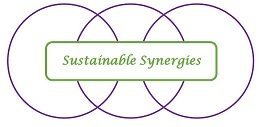The digital transformation of society and economy is seen by a large majority of waste stakeholders as a pivotal mean to “spur innovation and productivity growth, to transform waste services, and to improve the amenity of cities as information, knowledge and data become more widely available”(see the EEA 2020 report on Digital Waste Management). Despite that the waste management sector is still in an early phase in this development, digital technologies already appear as indispensable to engage the transition to Circular economy which requires a much more efficient management system since the distinction between raw materials, products and waste becomes increasingly unclear,
Blockchain is a decentralized electronic ledger system that creates a cryptographically secure and immutable record of any transaction of value. As pointed out in 2018 by the World Economic Forum (link), it enables “game changer” capabilities that can deliver transformative solutions to environmental challenges:
- Full traceability of products from source to store.
- Decentralized and sustainable resource management (peer to peer transactions)
- Access of funding and possible link to climate finance:
- New ways to value and trade materials and natural resources
- Improved monitoring, reporting and verification
- Automation of management processes (i.e. smart contracts)
As reported by the EU funded BLOCKWASTE project (link), there is not any full-scale blockchain project in municipal solid waste management neither in Europe nor in the US. The prospects opened up by the blockchain are really interesting as it solves several key issues related to Circular economy::
- Municipal solid waste management processes are heterogeneous with a larger number of external actors and have cope with a diversity of interests. Decentralization is necessary to adapt to different context while strong regulatory frameworks must be in place,
- The asymmetry of information (recovery potential, material flows, financial flows) between consumers, reusers, repairers, recyclers and producers generates uncertainty and mistrust, which hinders the development of the value chain across the different sectors.
- The behavior of the individuals either as residents or consumers is key for channeling municipal solid wastes from the collection points to designated refurbishing, dismantling, and recycling centers. Awareness raising campaigns and economic instruments (service fee, EPR,… ) are of great help but it is not enough. Some kind of rewarding system targeting individual behaviors are necessary to provide positive incentives.
- The need to optimize the use of materials and resources will create new responsibilities that are likely to be assigned to the private sector. The challenge will be to combine flexibility with accountability.
The lack of uptake for blockchain can partly explained by the fact that blockchain is still a nascent technology with considerable challenges that need to be overcome, from user trust and adoption through to technology barriers (including interoperability and scalability), security risks, legal and regulatory challenges, and current energy consumption.
Finally, the main obstacle to progress is the paradoxical situation facing the waste sector: on the one hand, it is a highly centralized and regulated sector; on the other hand, there is a strong need for a paradigm shift from the current “waste push” (i.e. sustainable waste management aimed at diverting waste from disposal to recovery and recycling) to “market pull” (i.e. promoting the production of resources for which there is a high-value secondary raw material market). This is an organizational challenge that requires a new governance model to optimize management processes and enable synergies between the different actors. Meanwhile, experimentation with blockchain tools should continue in order to gain a deeper understanding of the pros and cons of this technology and the constraints for integrating it into an overall digital solution (see the IEEE survey on blockchain for waste management in cities).
